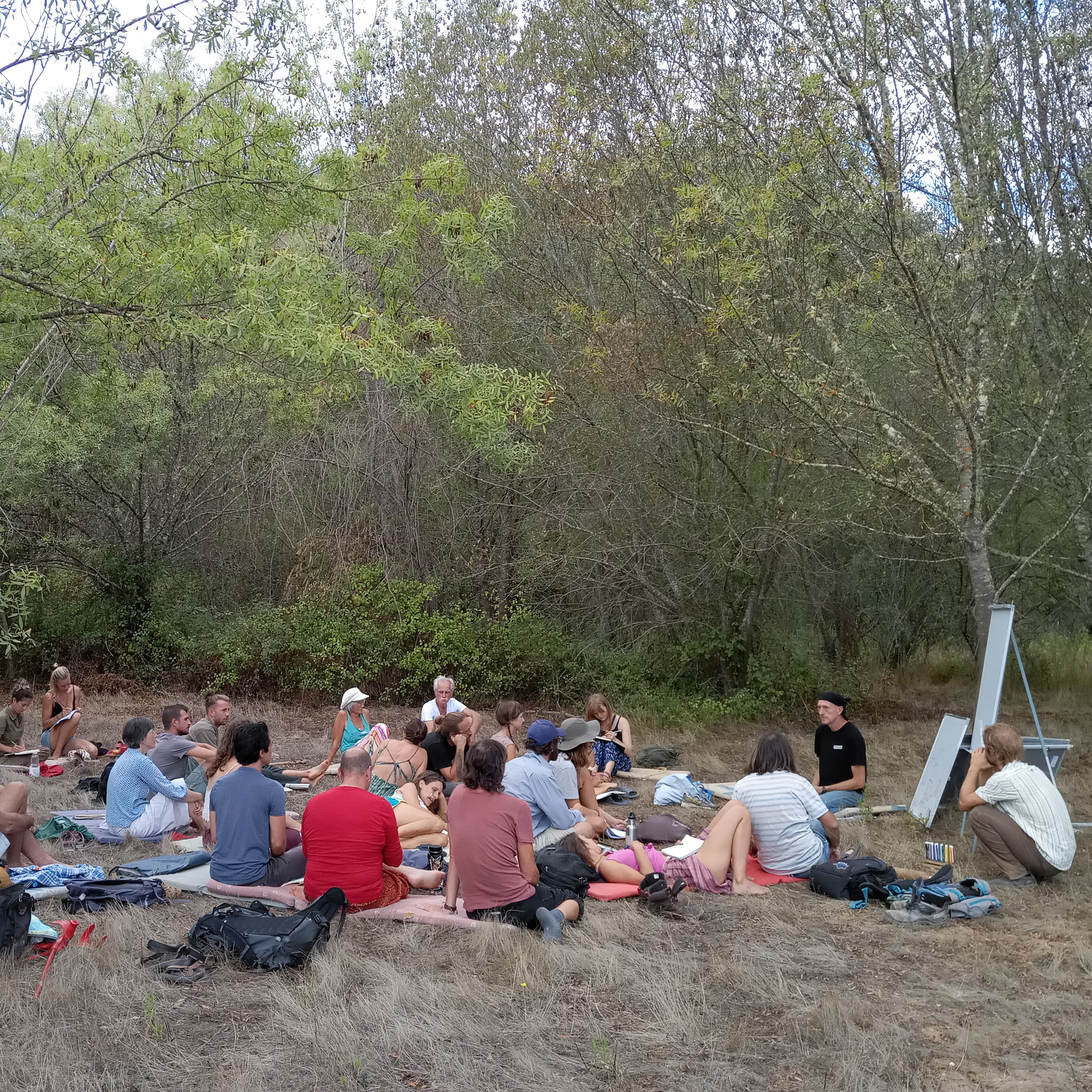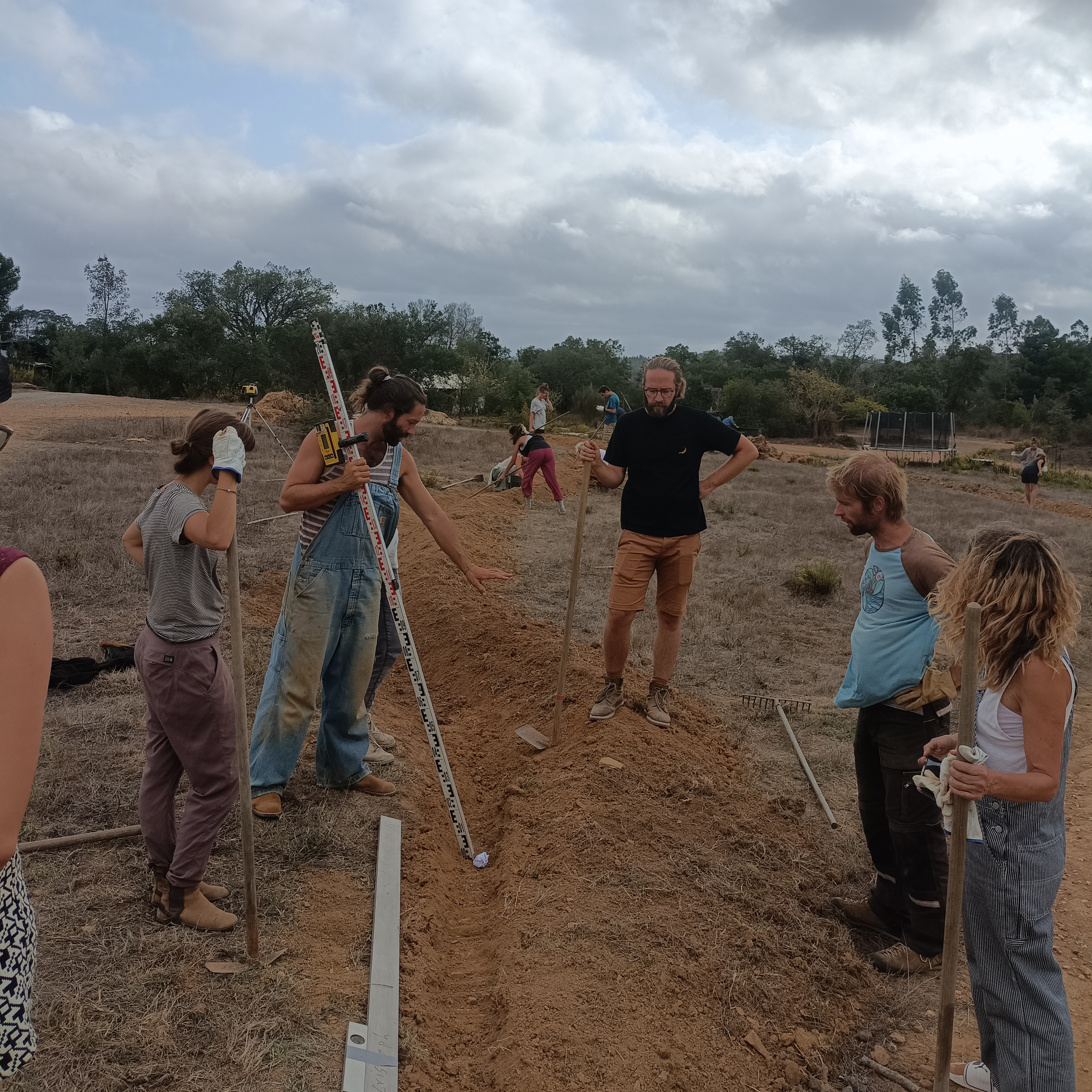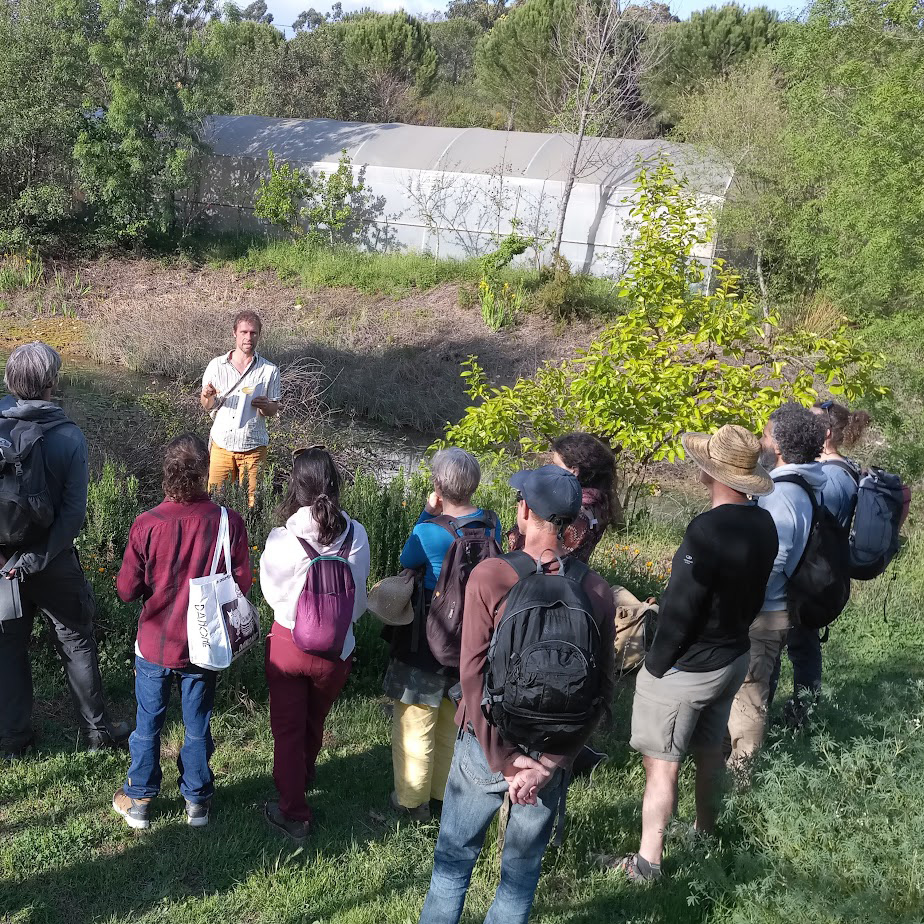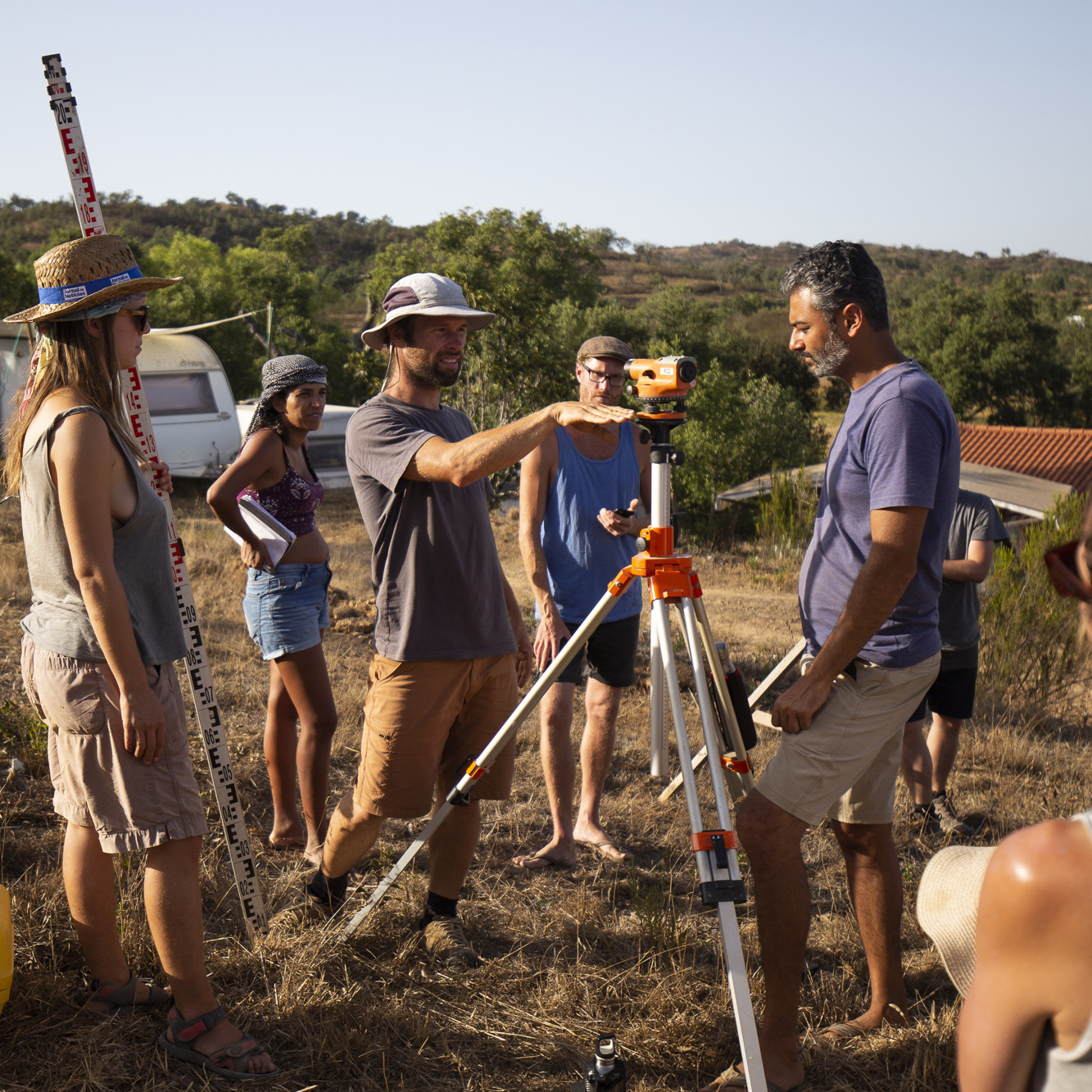Introduction to Water Retention Landscapes
Water is key in a landscape’s capacity to harbor life. Without water we wouldn’t be here. Human activity has negatively impacted landscapes around the world on a large scale. These degraded landscapes and ecosystems lead to a broken water cycle and continue contributing to anthropogenic climate change. As a potential counter to this harm, creating decentralized Water Retention Landscapes (WRL) re-engages us with our ecosystems in a regenerative practice of adapting with nature to meet our needs rather than extracting from it. It’s a way to re-build relationship with the water, the land, the non-human animals, and everything that surrounds us in nature, in an effort to de-center ourselves. Think globally, act locally.
While unsustainable and extractive water management that is practiced globally across industries – agriculture, urban planning, forestry, fishing, water treatment exacerbates these broken water cycles, we believe that the landscapes we inhabit are a direct reflection of our “inner landscapes”. Extreme weather patterns and degraded ecosystems are mirroring the imbalance of our social and economic systems.
“Action on behalf of life transforms. Because the relationship between self and the world is reciprocal, it is not a question of first getting enlightened or saved and then acting. As we work to heal the earth, the earth heals us.”
Robin Wall Kimmerer, author of “Braiding Sweetgrass: Indigenous Wisdom, Scientific Knowledge, and the Teachings of Plants”.
Program Details
This course is a 7-day introduction into the design and creation of scalable Water Retention Landscapes. We’ll explore the underlying principles which inform the design process for thriving ecological systems. Tamera’s land and the neighboring ecosystems will serve as a model to show different techniques to stop run off, retain rain water, accumulate nutrients, build soil, and increase biomass and biodiversity.
Together, we will apply these principles experientially as we build rain water harvesting structures and learn about the specifics of a particular location. In addition, we will study community context and the role of people in system change. For example, how can we develop a relationship with land in the spirit of stewardship rather than being land owners? What does this look like on paper, and in practice?
We’ll see how water retention can be a viable strategy to mitigate global issues like flooding, major fires, desertification, a declining groundwater table and exploitive water policies.
You’ll explore:
- basic principles and techniques of the Water Retention Landscape
- decentralized WRL as a scalable model
- the impact of centralized water systems with examples from our region
- Scale of Permanence as a design framework (P.A. Yeomans)
- how to reverse desertification
- large and small water cycles
- broken water cycles
- utilizing maps, aerial images
- understanding watersheds
- outer & inner landscapes
- deep ecology exercises
- vegetation in WRL, vegetation management
The program will be composed of:
- a preparation package prior to the course (with questions regarding your own water situation and content)
- a Tamera tour, seeing different techniques of water retention (swales, terraces, dams, ditches, check-dams, rip-lines, etc)
- hands-on learning by building water harvesting structures
- learning and working in teams
- an excursion
- all course material in digital form
- access to Tamera’s public events and public spaces
Comments from previous course participants:
“Very well organised educational and spiritual event to get in touch with the value of the water. I´ve got tons of inspiration to change the approach to water management. It is a radically positive experience.”
Jaroslav
“If you are looking for a course that will give you good quality knowledge, explains the problems relating to water scarcity in a holistic way and searching for solutions and answers to solve our management of water, this is the course. I feel so grateful and humble for this experience and for this inspiring course. I felt so inspired to continue on this path of how to save, protect and connect with water again.”
Solvei
“Learning about how to heal the landscape, the water and our community while healing myself was an amazing experience. Thanks for sharing all the work and love with us.”
David
Cost
Sliding Scale from
€690 to €1140
(including seminar fee, board & accommodation)
Why are we using a sliding scale?
Please consider applying for or donating to our solidarity fund if you can’t pay the lower end of the sliding scale or want to support others.
Our invitation to Portuguese nationals.
Payment Policy
Once you have filled out the registration form, we will send you an email with instructions on how to pay.
Please pay the full amount in advance.
If you are not able to pay the full amount in advance, please note that in order to confirm your registration, at a minimum, you must pay a non-refundable registration fee of €160.
Accommodation
Dormitories, own tent, or own van.
A room in the Guest House can be booked at an additional cost.
Food
Vegan full board
Language
English
Arrival and Departure
Please arrive the day before the course begins and depart the day after the course finishes.
Children
Please note that it’s not possible to bring children to this course.
Pets
Please note that it’s not possible to bring pets to this course.
Pictures from previous courses:



